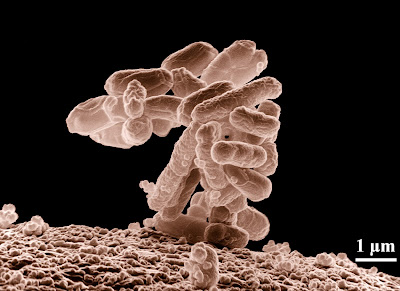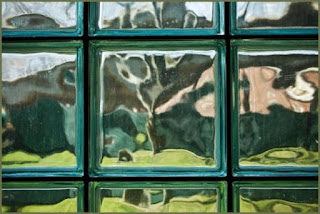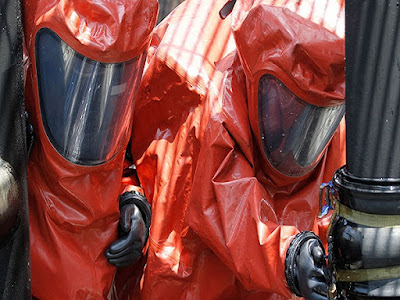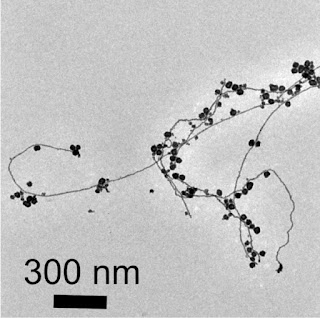Reinvented Bacteria Build Self-Healing 'Living Materials'
Content:
How helpful would it be if,
rather than taking your broken circuit board to the Genius Bar (once more), you
could simply incite it to recuperate itself? That is the cutting edge
probability specialists have as of late crawled somewhat toward, with the advancement
of half and half "living materials" produced using bacterial cells
and inorganic issue. The revelation could make ready for electrical segments
that are self-mending and earth mindful.
The group of architects from
MIT reconstructed E. coli microscopic organisms to lock onto gold nanoparticles
and quantum specks—modest, semiconducting precious stones. With living cells
and inorganic material married, researchers could gather the cells into
biofilms (a thin layer of microbes bound together) that could direct electrical
ebb and flow. Since the cells additionally speak with each other, the
subsequent "living material" can adjust to changing natural
conditions.
Up until this point,
researchers have recently assembled electrically directing nanowires, yet the
scientists trust the showing of their new material opens the entryway for more
mind boggling gadgets like sun oriented cells, self-mending materials or
indicative sensors.
Seizing E. coli
The new "living
materials" are like our bones, which are made out of cells that join
nonliving minerals, for example, calcium, to make living tissues. Our bones not
just give our body structure; they develop and mend in light of ecological
jolts.
The group worked with E.
coli on the grounds that it normally hooks onto others of its species utilizing
proteins called "curly strands." Engineers modified E. coli to create
curly filaments that got gold particles. They at that point provoked the
microscopic organisms to self-amass into a gold-bound biofilm—basically an
electrically leading system of gold nanowires. Utilizing a similar strategy,
they additionally modified curly strands to get quantum specks. Developing the
gold and quantum dab microbes together could make a half and half material with
the two kinds of conductors.
What's more, on the grounds
that the microbes impart, the material can in principle act naturally
recuperating. The specialists demonstrated that their designed bacterium could
provoke its ordinary neighbors to likewise end up gold-snatching machines. The
specialists distributed their discoveries Sunday in the diary Nature Materials.
Future Applications:
"It demonstrates that
in fact you can make cells that discussion to each other and they can change
the organization of the material after some time," said Timothy Lu, a
partner teacher of electrical designing and natural building in a MIT news
discharge. "Eventually, we want to imitate how common frameworks, similar
to bone, shape. Nobody instructs bone, yet it produces a material because of
natural signs."
Contingent upon what engineer’s
program microscopic organisms to get, these half breed materials could frame
the premise of future batteries and sun powered cells, or even indicative
gadgets and platforms for tissue building. The analysts are likewise keen on
covering the biofilms with compounds that could separate cellulose, which could
be helpful for changing over rural waste to biofuels.




Comments
Post a Comment